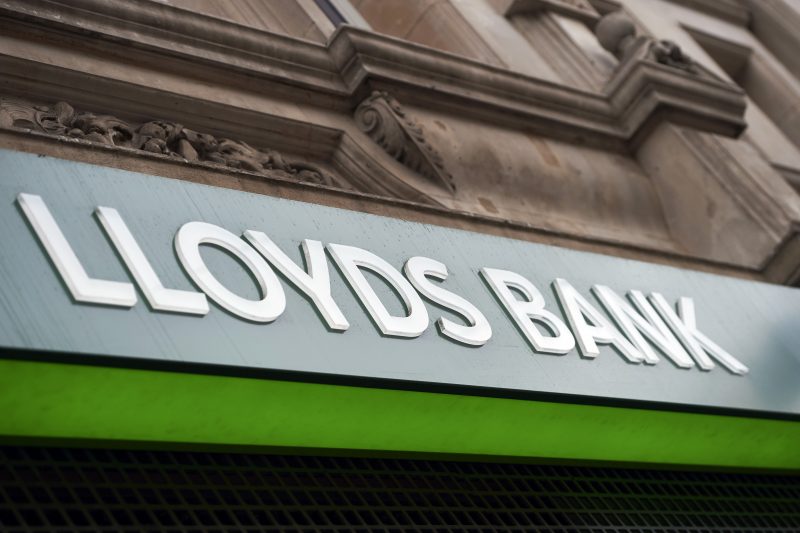UK bank Lloyds says annual profit up by quarter
The “resilient” performance of the UK economy last year helped Lloyds boost profits (NIKLAS HALLE’N)
London (AFP) – Britain’s Lloyds Banking Group announced Wednesday surging 2018 profits on lower product mis-selling costs and the “resilient” UK economy — despite looming uncertainty over Brexit.
Net profit jumped 27 percent to £3.87 billion ($5.02 billion, 4.43 billion euros) last year from 2017, LBG said in a results statement.
Lloyds, which returned to full private ownership in 2017 following its rescue by the UK government almost a decade earlier following the global financial crisis, added that pre-tax profit rebounded 13 percent to £5.96 billion.
The banking titan also rolled out a bumper pay-out to shareholders, in the form of a dividend hike and buybacks, totalling up to £4 billion and sending its share price racing higher.
“Given our UK focus, our performance is inextricably linked to the health of the UK economy,” said chief executive Antonio Horta-Osorio.
“Over 2018, economic performance has remained resilient with record employment and continued GDP growth.”
In a nod to uncertainty over Britain’s looming departure from the European Union, he noted:
“Whilst the near-term outlook remains unclear, particularly given the ongoing EU withdrawal negotiations, our strategy will continue to deliver for our customers.”
Nevertheless, Lloyds added that it was planning ahead “on the basis of an orderly EU withdrawal”.
Britain will leave the European Union on March 29 — but businesses are still fretting over the possibility of a chaotic no-deal departure.
Lloyds meanwhile took another £750 million in costs during 2018 for payment protection insurance (PPI) mis-selling claims.
That was lower than £1.65 billion in 2017, but took the bank’s total bill for the saga to a staggering £19.43 billion, far higher than other UK banks.
In 2011, British banks lost a high court appeal against tighter regulation of PPI, which provides insurance for consumers should they fail to meet repayments on a credit product such as consumer loans, mortgages or payment cards.
PPI became widely known after it was revealed that many customers had been sold it without understanding that the cost was being added to their loan repayments.
British authorities have since banned simultaneous sales of PPI and credit products.
– ‘More upbeat’ on Brexit –
On Wednesday meanwhile, Lloyds also hiked its shareholder dividend by five percent to 3.21 pence per share and proposed a share buyback of up to £1.75 billion.
In midday deals, Lloyds shares jumped 4.15 percent higher to stand at 60.79 pence on London’s FTSE 100 index, which was 0.3 percent higher overall.
“There’s been a nice move higher in shares of Lloyds… after the bank reported what could be described as pleasing and well-rounded results,” said XTB analyst David Cheetham.
He added that Lloyds had also struck “a more upbeat tone” than its British rivals.
“RBS and HSBC have both warned in their latest communication of the potential upset from Brexit on their operations, but Lloyds was altogether cheerier, acknowledging an uncertain outlook for the UK economy in the near term — but not taking any additional impairments in expectation of a downturn,” he said.
Disclaimer: This story is published from a syndicated feed. Siliconeer does not assume any liability for the above story. Validity of the above story is for 7 Days from original date of publishing. Content copyright AFP.


